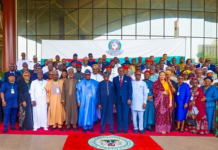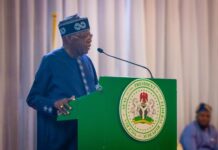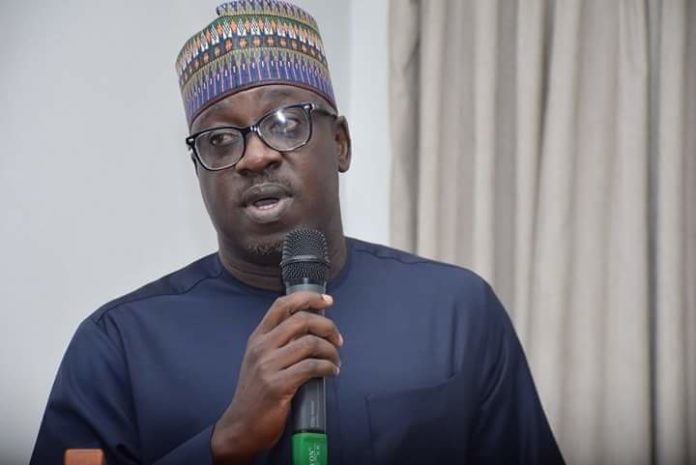A historian once argued that even the most cataclysmic events hardly change the course of history. The coronavirus pandemic is certainly one of the most catastrophic events of our time. In terms of how many lives it has claimed, it would not be the most deadly the world had seen. But aided by the very force of our modernity, globalisation, COVID -19, is perhaps the first ever truly global pandemic that mankind has suffered. Whether it would alter the course of human history in any fundamental ways or not would be seen in the months ahead. One thing that is certain however is that so much will change going forward, and we all better brace up for the impacts. A few decades from now, COVID-19 will not be remembered for how many people it killed, but how it has redefined international relations and triggered the transformation of political and economic norms within nations.
It is unlikely that this pandemic will spare any country of the world. However, what is becoming clear even now is that it is affecting and it will affect different regions, if not countries, of the world differently.
Like the rest of the African continent, the virus had arrived Nigeria later than other countries in Asia, Europe and America. We have therefore enjoyed both the benefit of early warning as well as the opportunity to learn from the experience of these earlier affected countries and how they have handled this grave challenge. However, it can be argued that this learning opportunities have also denied us the opportunity to develop original Nigerian responses the pandemic rather than the one-size-fits all solutions that we have seen so far.
If we look at the trend worldwide, old age is a critical factor in the vulnerability to this virus. The people who have died from COVID-19 are mostly older people from 55 years and over. The demographic patterns of some of these countries therefore accounts for the high number of fatalities that they have recorded. One of the worst hit countries in Europe is Italy whose population is 36.8% over 55 years old. For Spain is about 31%, just like the United Kingdom. For the United States, it is about 30%.
In Nigeria, where the median age is 18 years, those between the age of 55-64 account for only 4.3% of our population while only 3.3% of Nigerians are above 65 years of age. In a way, Nigeria will enjoy a huge demographic advantage this pandemic. No matter what happens, therefore, we are not likely to record the kind of high numbers of death that we saw in these other countries. If Corona virus likes to kill older people, it will not enjoy much prosperity in Nigeria, because we simply don’t have too many of them. In fact, more Nigerians will likely die from road accidents and malaria than from the corona virus.
Many have described the tough choice faced by the government as the Gordian knot. If this lockdown continues, we risk social unrest. If we lift the lockdown too soon, we risk the pandemic getting worse. Like in all false parallel, this is not completely true. In deciding what to do, government would have to honestly evaluate both risks and ask itself, which is worse.
By one estimate, 64% of our population live in rural areas, this is also where the majority of older people who are mostly at risk of dying from this virus live. Conversely, majority of the urban population who are most exposed to the virus are young people. Not only are they the least likely to die from the virus, even if they are infected, they are also the ones most affected by this lockdown and the most likely to start any unrest.
No doubt, some form of restrictions is critical to dealing with this serious pandemic. However, this copy-cat lockdown is hurting the people, and making most to wonder if the danger posed to them and their families by hunger that is so real and present, is not worse that the virus that they only hear about. In any case the lockdown has not really curbed close interactions among our people, especially in the densely populated urban and sub-urban areas where the very architecture of houses, makes any form of social distancing impossible. It is indeed possible that millions of Nigerians have already contracted this virus. But these boys running miles daily to sell a few handkerchiefs in the traffic are not likely to die from Corona virus.
It is impossible to diminish the danger that this virus poses still. However, while Nigeria will escape high number of fatalities from COVID-19, we are unlikely to escape its after-shocks. The global economic pandemic that is bound to follow this virus will pose a much greater challenge to our government than the disease itself. Already with the collapse of the global oil market, it appears that the 2020 budget is inescapably doomed and experts have started to warn of the Zimbabwe or Venezuela kind of economic collapse.
It is indeed a great irony that in the last decade or so, 2020 has been the magical deadline for us to transform our economy and join the developed countries of the world. At least, this was what the vision 20:2020 was about – to make Nigeria one of the top 20 economies of the world by this year. Well, here we are. Year 2020 will not be the year that Nigeria arrives at the land of dreams but it may be the year it finally landed in the valley of nightmares. This may be the year that everything changes for our country. Even a cat with nine lives will eventually use up the last one someday.
As the pandemic shuts down the global economic machines, we suddenly find ourselves saddled with oil that no one wants to buy. Yet, that is the only thing we really have to sell. The bitter reality is that for years, we have behaved like badly trained children of a rich parents who only gather every month to share rent money while producing next to nothing. Now, it is daybreak. The dollars that we so much like to share and steal will no longer come. No one wants to buy the thing that we sell.
For years, we have talked about building a post-oil economy, but that is what we have done mostly – talk. We knew all along that a time will come when we will no longer be able to run our country on petro-dollars alone. But somehow, in our subconscious, we believe it will not happen in our lifetime. Sometime around 2013, when we were warned that the development of shale oil in America will pose a major threat to our economy, some “experts” argued at the time that the threat, if any, would not be in the foreseeable future because shale oil would not be developed at a commercially viable quantity for a long time to come. So, we slipped back to our suicidal indolence and continue to luxuriate in a false sense of comfort and delusion of prosperity. Now, the winter is here.
The months ahead could be the most difficult we have faced as a country and could prove to be the most decisive as well. We cannot escape the punishment for years of profligacy and lack of vision. But we can mitigate the impacts of the social disruption if we recognise the great danger that we face and begin to take the very drastic measures now. It appears that the Noah’s ark has already sailed.
However, we can still survive this deluge. The Federal Government needs to immediately assemble the best brains across the country and the diaspora to begin to examine various scenarios, and begin to prepare us for the worst scenario. This is not the time for meaningless partisanship or destructive sectionalism. If we don’t save this Titanic, it would not matter who’s sitting in the first or third class compartment.
Experts have compared the impacts of this pandemic on the global economy to that of the world wars, or even worse. Governments the world over are already switching into a post-war rebuilding and recovery mode. The sad reality for Nigeria and perhaps, the rest of Africa is that while we cannot escape the full impacts of the economic aftershocks of COVID-19, we are not likely to be part of the consideration in any global recovery plan. All along, Nigeria only mattered to the tune of our oil exports. Now that our oil is no longer needed, perhaps, for a long time to come, we really don’t matter.
However, even as we face a grim future, the months ahead also offer a great opportunity to re-evaluate some of the fundamentals of our existence and, humbled by the harsh realities that we face, begin to lay a more enduring foundation for this great country. The task may not be done in our lifetime. But if we start today, generations to come would probably look back at our efforts and forgive us.
The next decade or so will depend on what we do now. We must begin now to build different scenarios and find the best strategies to cope, survive and possibly thrive under those scenarios. It is really sad to see that even in the midst of this unprecedented challenge, even our youth are still pre-occupied with the politics of regional and religious differences.
Our politics of turn-by-turn has largely been fuelled by the free oil money that we share or steal. But the chicken, as they say, has come home to roost. It certainly cannot be business as usual. Our leadership recruitment systems must therefore be recalibrated to produce those who are genuinely committed to serving the country and its people and who have the mental capacity for it, regardless of region, religion or tribe. For Nigeria, it appears that doomsday is no longer a metaphor. It is here. We either brace for the impact and rise to the challenge or we simply roll over and die.






















